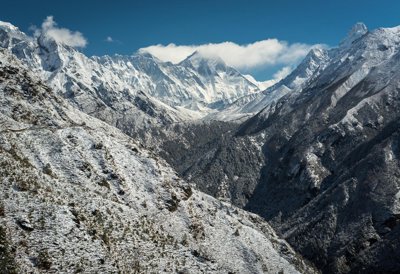How did you get to where you are now?
I attended the University of Dundee to study Environmental Science and Geography, where I was exposed to GIS for the first time and decided to use the software to analyse coastal erosion near Carnoustie.
Following my undergraduate degree, I returned home to study GIS and Cultural Heritage at Queen’s University Belfast, which honed my GIS skills further and supplemented the knowledge I had gained with the use of equipment for heritage surveys.
I currently work in Cambridge as part of Mott MacDonald’s Environmental Division, which supports ongoing construction, maintenance and operations work for major organisations.
What do you do as part of your role?
Within a typical week I will assist colleagues with anything from figure design and online data visualisation to task automation. As a GIS Consultant it is important to be versatile and adaptable to a variety of real-world problems which arise during the collection and design of data. My go-to software is ArcMap or ArcGIS Pro to present information and organise data pulled from ArcGIS Online. Web-mapping and online data is now becoming increasingly popular for companies and clients alike. I have been working on web-applications for large-scale projects which helps concurrent activity and interaction for multiple users, whether use is for basic viewing or editing data from the field or office.
Fieldwork setup tends to focus on the use of applications such as Collector for ArcGIS and Survey123, which enable fieldworkers to collect and view data offline. Data can be collected and modified whilst on-site and, when returning to the office, it can be synced online for analysis and further editing. These apps provide a digital footprint which, for large-scale projects, is vital to ensure all procedure is followed accordingly for worker safety and accountability. I enjoy teaching fellow colleagues how to use and interact with these apps.
What skills and characteristics do you need for this role, apart from geographical knowledge?
A GIS Consultant is much more than designing maps. To ensure that the highest standards are met it is essential to be pragmatic when approaching problems. The ability to express ideas clearly and concisely in order to expose clients and colleagues to the potential which geo-spatial information can provide is key.
The ability to present information in a logical and ordered manner is also important, as well as a desire to learn new skills. I’ve gone from having next to no knowledge of coding experience, to now being able to write my own python scripts for repetitive task automation.
How does geography feature in your work/what difference does it make?
Geography features strongly within my scope of work, as infrastructure design will always create impacts on the surrounding habitat or society. The work conducted at our organisation aims to mitigate these impacts in a sustainable and efficient manner, and the use of GIS helps present data in a tangible way.
What do you enjoy most about your job?
I enjoy the variety of the work; every project I’ve been part of has had unique challenges and problems to solve. The global stature of the company also allows me to work on aspects of projects across the world with people from all backgrounds, and I find it very enjoyable working with a wide array of talented colleagues.
What are the opportunities for career progression? Where might you be in five years’ time?
Mott MacDonald has a very beneficial graduate scheme which aids junior staff development and core skills such as communication and project management. As part of my career progression I aim to continue to learn new skills within my team with the long-term aim to be a Chartered Geographer with the RGS-IBG. Part of the requirements for this is to keep a record of Continuing Professional Development (CPD) activities that I carry out throughout the year.
What advice would you give to someone wanting to go in to this career?
It is definitely an advantage to have a background in geography as a basis for working with geo-spatial information, however it is not a prerequisite. It is best to gain a broad scope of knowledge of GIS software and its respective strengths. I would also advise studying a postgraduate degree to develop specialist skills.
Maintain a drive to keep learning and improving your skill repertoire, as this will ensure that you will be able to adapt to new software as it is released. Also, identify what aspect of GIS you like most, whether it be cartography, automation, data collection, management or any other aspects and use this as the basis of your expertise.
Why did you choose geography? Why should others choose geography?
In short, geography was my favourite subject. The skills a geographer will learn and develop throughout education, such as fieldwork, data analysis, report writing, and IT skills can be applied for a range of job roles, which allows us to be versatile and adaptable within the workplace.
If you enjoy learning about the environment and have an interest in fieldwork, geography is the subject for you. It will expose you to many different concepts and will ultimately open doors for you to pave a pathway to your chosen career.
* This interview was undertaken in 2019 and was correct at the time of publication. Please note that the featured individual may no longer be in role, but the profile has been kept for career pathway and informational purposes.

